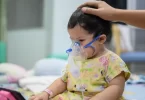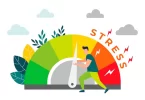As country prepares for first ‘normal’ Christmas since 2019, experts warn some precautions may be needed
While this year’s festive season may be less gloomy than that of the past two years, experts are warning there are many infectious diseases circulating, urging caution over yuletide mingling. We take a look at the latest stats and advice on how to stay safe.
I thought this Christmas was supposed to be ‘normal’. What’s happening?
The past two Christmases were certainly anything but normal: in 2020, Covid restrictions scuppered many family gatherings while concerns in 2021 over the Omicron variant led to the introduction of a mass booster vaccination campaign, together with advice for people to take precautions including lateral flow tests before meeting others.
As Covid vaccinations have held up well against severe disease, it has begun to look a lot more like Christmas in 2022.
But with infection levels on the rise once more, flu hitting hard and early, and respiratory syncytial virus (RSV) causing sickness, particularly in young children, experts are urging people to reduce their chance of spreading disease to others.
How bad is the current situation?
According to the latest data from the Office for National Statistics, about 1,197,200 people, or one in 45, in the community in England had Covid in the week ending 9 December – that’s a rise of just more than 9% from 1,095,100 the week before. Levels have also risen in Scotland, although the trend is unclear in Wales and Northern Ireland.
The figures chime with hospital data. According to UKHSA, overall hospital admission rates for Covid in England hit 9.56 per 100,000 in the week beginning 12 December, up from 6.61 per 100,000 the week before, while data from NHS England reveals that the number of patients primarily being treated for Covid in acute trusts rose from 2,111 on 13 December to 2,741 on 20 December.
Multiple metrics, such as the rate of consultations for flu-like illnesses at GP surgeries in England, suggest cases of flu are also rising, with hospital and intensive care admission rates for flu increasing.
Meanwhile, RSV continues to circulate. While admissions among children under five years old have dropped, data suggests they remain high, at 17.48 per 100,000 for the week beginning 12 December.
Are we being asked to cancel Christmas?
No. There are no restrictions this year. But experts are warning people to be careful about spreading infections – Covid, flu and RSV can cause serious illness, particularly in vulnerable people.
What’s the advice?
To take up the offer of Covid and flu vaccinations. But experts have also reiterated the importance of basic infection control measures, such as hand washing, good ventilation and wearing a face covering in crowded settings.
Those who feel unwell should stay home and not mix with others, they added.
“It is the correct advice. If you have got symptoms – runny nose, sore throat, fever, headache and you feel flu-like – then please do stay at home,” said Calum Semple, a professor of child health and outbreak medicine at the University of Liverpool. “You don’t know if the person sitting next to you or in the shop might have an underlying cancer or other susceptibility.”








Leave a Comment
You must be logged in to post a comment.